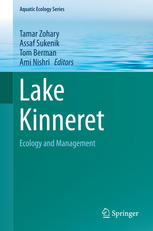

Most ebook files are in PDF format, so you can easily read them using various software such as Foxit Reader or directly on the Google Chrome browser.
Some ebook files are released by publishers in other formats such as .awz, .mobi, .epub, .fb2, etc. You may need to install specific software to read these formats on mobile/PC, such as Calibre.
Please read the tutorial at this link: https://ebookbell.com/faq
We offer FREE conversion to the popular formats you request; however, this may take some time. Therefore, right after payment, please email us, and we will try to provide the service as quickly as possible.
For some exceptional file formats or broken links (if any), please refrain from opening any disputes. Instead, email us first, and we will try to assist within a maximum of 6 hours.
EbookBell Team

4.1
30 reviewsThis condensed volume summarizes updated knowledge on the warm-monomictic subtropical Lake Kinneret, including its geophysical setting, the dynamics of physical, chemical and biological processes and the major natural and anthropogenic factors that affect this unique aquatic ecosystem. This work expands on a previous monograph on Lake Kinneret published in 1978 and capitalizes on the outcome of more than 40 years of research and monitoring activities. These were intensively integrated with lake management aimed at sustainable use for supply of drinking water, tourism, recreation and fishery. The book chapters are aimed at the limnological community, aquatic ecologists, managers of aquatic ecosystems and other professionals. It presents the geographic and geological setting, the meteorology and hydrology of the region, continues with various aspects of the pelagic and the littoral systems. Finally, the last section of the book addresses lake management, demonstrating how the accumulated knowledge was applied in order to manage this important source of freshwater. The section on the pelagic system comprises the heart of the book, addressing the major physical processes, external and internal loading, the pelagic communities (from bacteria to fish), physiological processes and the major biogeochemical cycles in the lake.